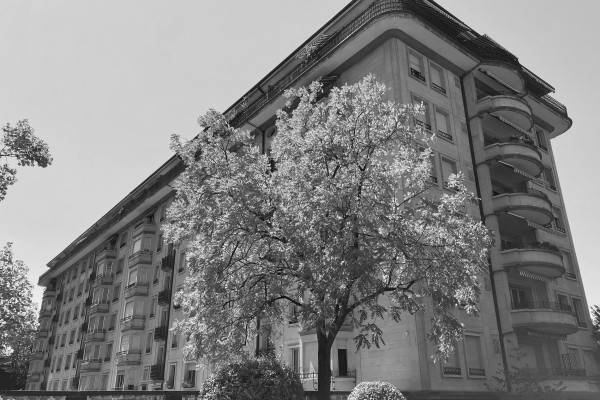
The escalation of the Covid-19 pandemic gave the private equity industry a short shock. However, as we have seen in the past, this asset class has delivered particularly strong performances in post-crisis periods. Private equity will also continue to benefit from the low interest rate environment.
Once the pandemic hit the global economy, private equity managers were faced with the challenge of stabilising portfolio companies that were suffering due to their business models. With numerous current buyout transactions cancelled or put on hold due to the uncertain economic prospects and valuation problems, the buyout volume in the first half of the year dropped by 20% year-on-year to USD 90 billion. However, the slowdown effect turned out to be of a short-term nature. Large numbers of the transactions that had been cancelled in March and April 2020 were resumed in the second half of 2020 and buyout activities picked up again. The swift rebound of deal activities is in no small part due to the consistently high availability of debt capital at favourable conditions and the considerable volume of committed but unallocated capital (dry powder).
Support in the battle against Covid-19
Towards the summer, once the general health situation had stabilised in many parts of the world and lockdown rules were relaxed in many places, private equity companies increasingly turned their attention to new deals. Aside from the technology, media & telecommunication (TMT) sector, a considerable volume of deals was also transacted in the industrial and chemical industry as well as in the pharmaceutical and biotech sectors. These sectors and their underlying business models had proved to be highly Covid-resilient, which increased their attractiveness. In the battle against the pandemic, private equity contributed towards the development of new therapy and test options and vaccines.
Well-diversified private equity portfolios are capable of absorbing temporary shocks.
Substantial further inflows of capital from private equity funds into the pharmaceutical and biotech industries are expected even after the end of the pandemic. At the end of the year, the data provider Preqin put the number of transactions in the healthcare sector at over 1,000 transactions, totalling a volume of USD 98 billion. In the new year, the sector has continued to grow significantly with private capital of over USD 25 billion already invested.
Private equity and pharma research join forces
Biotech innovations continue to play a key role in global efforts to improve our quality of life. While we can only hope that the current pandemic and its global ramifications remain a one-off event, it has nevertheless laid the groundwork for the development of a new generation of therapy options that may heal or prevent future diseases. Private capital will be a crucial factor in this development. Co-founded by the US private equity firm GTCR, the company Maravai LifeSciences is a good example of a successful collaboration between private equity and pharma research. Maravai conducts research in the DNA field and produces ingredients for the development of vaccines, among others supplying components for Pfizer/Biontech’s Covid-19 vaccine production.
Companies such as Hello Fresh, Delivery Hero or Wolt enjoyed record years in 2020.
Winners include food producers and service providers
The Covid-19 crisis has shown us that well-diversified private equity portfolios are capable of absorbing temporary shocks. Although global lockdowns in the first six months of 2020 translated into (largely unrealised) losses at the portfolio companies for various fund managers, many portfolio companies also benefited from the pandemic and recorded higher returns than anticipated. The main beneficiaries of the lockdowns were the food industry and its associated service providers. Private equity-financed companies such as Hello Fresh, Delivery Hero and the Finnish start-up Wolt, which were already growing rapidly before Covid-19, enjoyed record years in 2020. This trend is expected to continue in 2021. The closure of restaurants and progressive digitisation buoyed up demand, especially among millennials and Generation Z.
Lockers full of dry powder
Since the start of the pandemic, companies worldwide have converted operations to facilitate work from home. As a consequence, video conferencing providers, such as Starleaf which is supported by the private equity company Highland Europe, have experienced a massive surge in demand. In the first six months of 2020 alone, Starleaf recorded a 60% increase in sales in the video conferencing, calls and chats segment. In the third quarter, the UK company facilitated over 12.8 million video and telephone conferences, close to four times as many as in the previous year’s quarter. There is no doubt that some of the meetings will continue to take place digitally in the future, saving companies money for business travel and benefiting the environment. Overall, the technology sector is expected to continue generating high returns in the current year.
Returns of top quartile buyout funds by vintage years
Just like after the last global economic crisis, private equity is likely to continue benefiting from the low interest rate environment. It is a proven fact that the asset class has performed particularly well after economic slumps (see graph). Given that lockers are currently chock full of dry powder totalling more than USD 1.6 trillion, this should also be true for the present crisis.
Dr. Claudia Emele, Managing Director, Avadis Investment Foundations, Zurich
Nicolas von der Schulenburg, Managing Director, Portfolio Advisors LLC, Zurich



